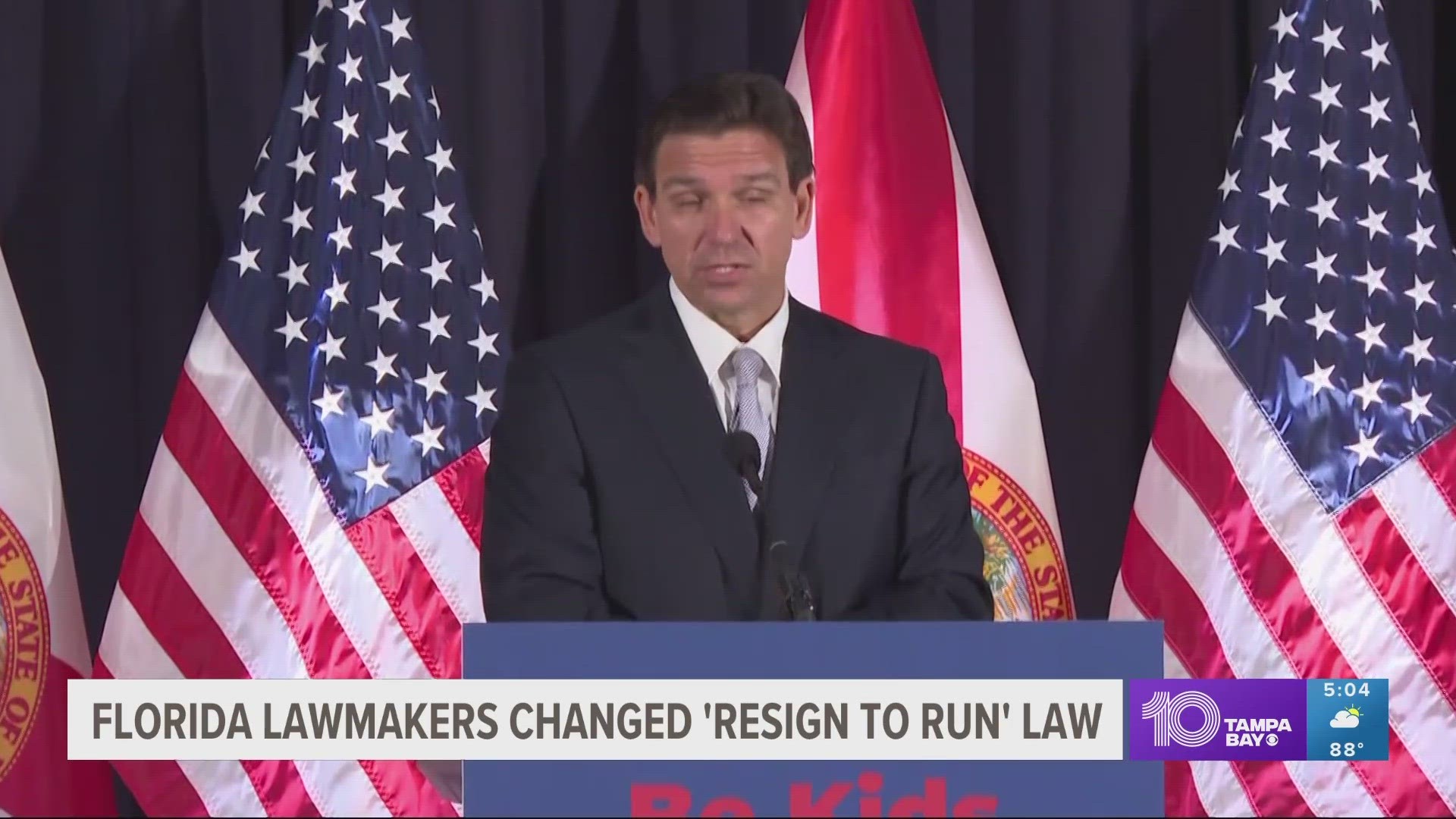TALLAHASSEE, Fla. — As a presidential launch loomed large for Florida Gov. Ron DeSantis, there was just one more thing that needed to happen before he officially launched his campaign for president.
DeSantis filed presidential campaign paperwork on Wednesday following a move by his political operation the week prior to relocate its headquarters. That started the clock on a 15-day window under federal election laws obligating DeSantis to register as a candidate.
His pathway to a presidential campaign is paved, in part, by recent changes made by Florida’s GOP-controlled legislature that will allow him to run without having to resign as governor.
The measure, attached to a much broader elections bill, carves out an exemption to Florida law requiring anyone seeking office to resign from one they already hold after qualifying as a candidate.
DeSantis signed the bill, which takes effect July 1, hours before officially launching his campaign.
THE QUESTION
Jackie B. in Brandon asked how DeSantis would be able to declare his candidacy without having to resign prior to the law taking effect July 1?
THE SOURCES
THE ANSWER
While the overall bill takes effect July 1, the provision changing Florida’s “resign-to-run” law takes effect immediately.
WHAT WE FOUND
Under Florida law, politicians in office must resign in order to run for another political position if their terms would overlap.
But an amendment nestled in a 96-page elections bill passed by Republican state lawmakers in April now offers an exemption – but only if the person is running for president or vice president.
The exemption does not apply if the candidate is running for other political offices.
The bill will take effect July 1 – however, the provision amending the “resign-to-run” law says it “shall take effect upon this act becoming a law.”
Democrats in the legislature fought the move, arguing an exception should not be made to help DeSantis. As an example, some state lawmakers in the past have needed to submit their resignations to run in special elections for congressional seats.
Republicans contend it clears up “ambiguity” in the resign-to-run law. Rep. Michelle Salzman, a Pensacola Republican who sponsored the House bill said at the time that candidates for president and vice president, unlike other offices, don’t have a clear qualifying period as they are nominated by their national parties.
The overall elections bill this provision is attached to continues the effort by state Republicans to make sweeping changes despite Florida holding relatively smooth elections in 2020 and 2022.
Much of the debate about the bill has centered on changes related to “third-party” voter registration groups, including increasing fines if the groups violate state laws. Also, the bill would prevent non-U.S. citizens from “handling” voter registration applications for the groups.
Democrats said that part of the bill would be discriminatory.
Among other things, the bill would:
- Require that voter-registration groups provide receipts when they collect applications from people.
- Shorten from 14 to 10 days the length of time groups have to turn applications in to elections supervisors and impose a $50-per-day fine for each application that is turned in late.
- Ease campaign-finance reporting requirements for candidates and political committees. Under current law, candidates and committees have to file monthly reports during off-election years and until shortly after the campaign-qualifying period in election years. They have to file more-frequent reports closer to elections. Under the bill, they would be able to file reports quarterly until qualifying time. At that point, they would resume the current reporting schedule.
The Associated Press contributed to this report.

